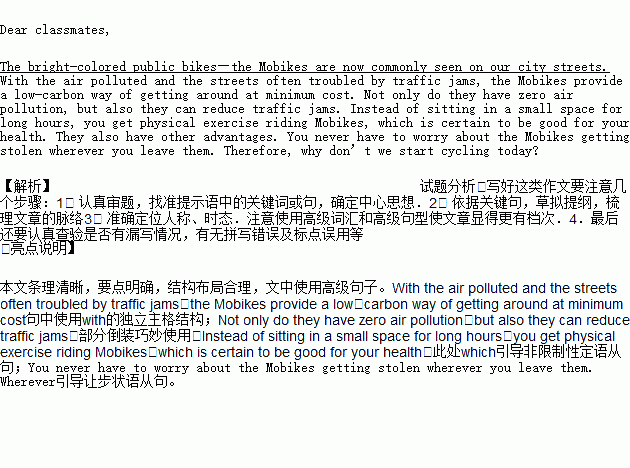题目内容
假如你是李华,你所在的城市出现“共享单车”,请写一篇倡导低碳出行的演讲稿,要点如下:
汽车 | 带来污染和拥堵 |
共享单车 | 不必担心存放和丢失 |
无污染,缓解拥堵,有利健康等 |
参考词汇
low-carbon 低碳的
air pollution空气污染的
reduce traffic jams 缓解拥堵
注意:1.可适当增加细节,使行文连贯;
2.词数 80-100;
3.开头己给出,不计入总词数。
Dear classmates,
The bright-colored public bikes—the Mobikes are now commonly seen on our city streets.
练习册系列答案
相关题目

